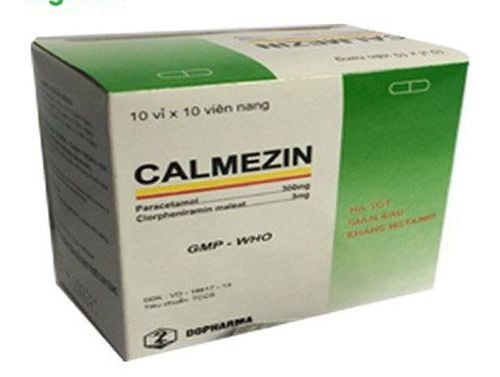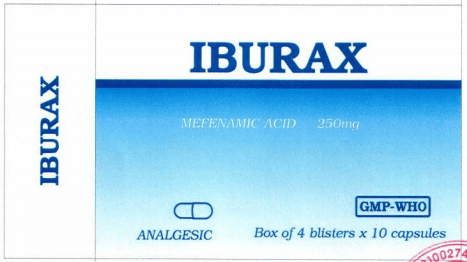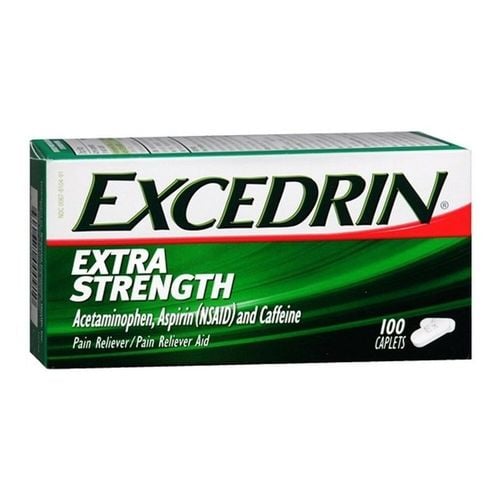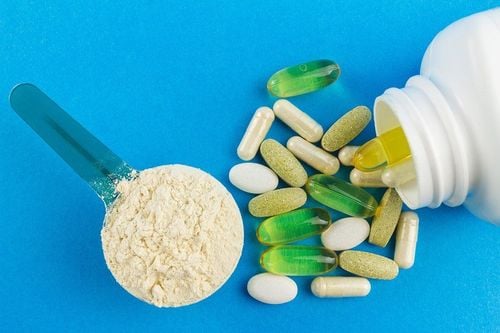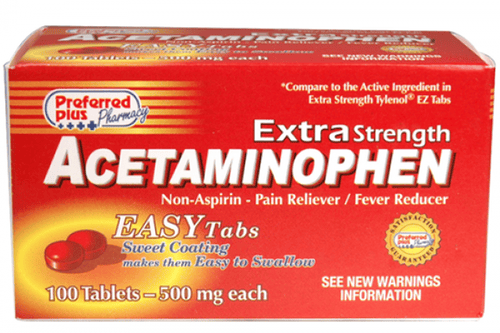This is an automatically translated article.
Meyerdonal 500mg medicine has the main ingredient is Mefenamic Acid. The drug is effectively applied in the treatment of patients with diseases: toothache, headache, pain after childbirth, after surgery,... Here are some useful information about Meyerdonal drug to help heart patients understand and safe and effective drug use.
1. What are the uses of Meyerdonal?
Meyerdonal is a derivative of Anthranilic Acid. The drug has anti-inflammatory and analgesic effects by inhibiting the synthesis and release of Prostaglandin in the inflammatory process.
Meyerdonal drug is indicated for the treatment of patients with mild to moderate pain in the following cases:
Treatment of toothache, headache, postpartum pain, after surgery. Treatment of musculoskeletal disorders such as: rheumatoid arthritis, osteoarthritis. Treatment of primary dysmenorrhea. Treatment of menorrhagia due to dysfunction or use of an IUD. Antipyretic treatment accompanied by inflammation of all kinds. Because Mefenamic Acid inhibits Prostaglandin synthesis in the central nervous system, lowering the body temperature of patients with fever. Meyerdonal 500mg drug is not used to treat patients in the following cases:
Meyerdonal drug should not be used for patients with hypersensitivity or history of allergy to Mefenamic Acid, other excipients contained in the drug. and non-steroidal anti-inflammatory drugs. Meyerdonal should not be used in children < 14 years of age. Meyerdonal should not be used by pregnant or lactating women. Patients with impaired liver and kidney function. Patients with advanced gastric and duodenal ulcers.
2. Dosage and usage of Meyerdonal
2.1. How to use the drug Meyerdonal is prepared in the form of film-coated tablets, which are tolerated in the body orally. Patients should drink during meals or the day after eating, use purified water or boiled water to cool when taking the medicine.
2.2. Dosage Patients need to follow the doctor's instructions when using Meyerdonal.
Dosage of Meyerdonal drug depends on each subject and the course of the disease, there will be an appropriate dose. Below is the dose of Meyerdonal for reference as follows:
For adults and children > 14 years old: The dose is 3 Meyerdonal tablets/day, divided into 3 doses, 1 tablet each time. For the elderly with impaired renal function: It is necessary to reduce the dose of Meyerdonal drug to suit each subject. The course of treatment with Meyerdonal drug takes place for a period of not more than 7 days. In case the patient uses an overdose, it will lead to some serious side effects such as: Seizures, diarrhea, vomiting.
How to handle a missed dose or overdose of Meyerdonal:
Patients need to immediately go to the nearest medical center for timely treatment. The patient should be induced vomiting and gastric lavage. If the patient forgets to take a dose, take the dose as soon as he remembers. But if it is almost time for your next dose, take your next dose as scheduled and do not take a double dose. Avoid causing unwanted effects, affecting the patient's health.
3. What side effects does Meyerdonal cause?
During the use of Meyerdonal, patients may experience some unwanted side effects reported such as:
Digestive system disorders such as: Diarrhea, abdominal pain, nausea, vomiting, indigestion , anorexia. On the skin: rash, rash, itching. Central nervous system effects: Dizziness, headache, depression. With high doses of Meyerdonal can lead to major convulsions, so it should be avoided in case of epilepsy. Causes temporary leukopenia in the blood. May increase the severity of asthma. During the treatment with Meyerdonal, if you see any side effects, you should immediately notify your doctor or qualified pharmacist for timely treatment.
4. Meyerdonal drug interactions
A number of Meyerdonal drug interactions have been reported, including:
Taking Meyerdonal with oral anticoagulants such as: Hydantoin, Salicylates, Sulfamides, Sulfonylureas will increase the response due to increased free concentrations to these drugs. This substance. Using Meyerdonal with CYP2C9 inhibitors will change the safety and effectiveness of Mefenamic Acid in the course of disease treatment. Using Meyerdonal in combination with ACE inhibitors, Angiotensin II receptor antagonists decreased response to blood pressure. Co-administration of Meyerdonal with aspirin increases gastrointestinal events. Using Meyerdonal with Antacids containing Magnesium hydroxide increases the Cmax and AUC of Mefenamic Acid. Use of Meyerdonal with diuretics reduces urinary sodium excretion. Use of Meyerdonal with Lithium: Decreased renal clearance of this substance. Therefore, it is necessary to adjust the dose of Meyerdonal drug accordingly, closely monitor signs of lithium toxicity. Using Meyerdonal with Methotrexate increases the risk of toxicity. Meyerdonal drug causes a false positive urine bilirubin test. In order to avoid the above drug interactions, patients who decide to be treated with Meyerdonal should inform their doctor about all medicines, health foods they are taking and other diseases they are having. To use the drug Meyerdonal is the safest and most effective.
5. Notes when using the drug and how to store Meyerdonal
Meyerdonal should be used with caution in pregnant women and nursing mothers.
For pregnant women: in the first months of pregnancy, it is necessary to use drugs to treat, it is necessary to consult a doctor. Absolutely contraindicated in the last 3 months of pregnancy because during this time there is a risk of toxicity to the fetus, heart, lungs, kidney dysfunction leading to kidney failure, prolonged bleeding time. For nursing mothers: Consider discontinuing the drug or stopping breastfeeding. Meyerdonal is excreted in breast milk and may cause adverse effects on the cardiovascular system. Meyerdonal should be used with caution when driving or operating machinery. The side effects of the drug dizziness, drowsiness may affect the ability to drive and use machines.
Other special note should be used with caution in patients in the following cases:
People with tachycardia, arrhythmia, congestive heart failure, myocardial infarction. People with hypertension, syncope, palpitations, vasculitis. Patients with acute peptic ulcer disease.




